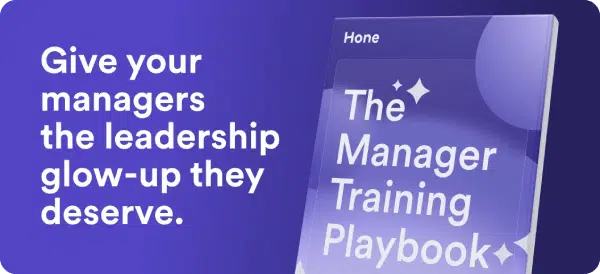Results versus relationships. The two can feel like a constant balancing act. And in the push to achieve results, relationships are often sacrificed.
But here’s the catch: relationships are what will help you achieve your results.
Hitting aggressive goals isn’t a matter of putting your head down and working in a vacuum (or empty meeting room) for months. You need your team to work in unison to hit aggressive goals. You need strong cross-team collaboration. You need open communication lines with company leaders.
You need relationships. Here are our suggestions for avoiding the common pitfalls in work relationships when the going gets tough.
Criticism took too deep a bite
It happens: You intended to give constructive criticism, but you hit too close to home. The recipient of your feedback was hurt or angry. Here’s how to repair the damage.
First, take a pause and a deep breath. Remember that you’re human. It’s likely not too late to re-visit the discussion.
Now, identify the point of conflict in your feedback. Feedback often goes awry when its targeted at the person instead of the behavior. For instance, You always show up late to meetings targets the person’s lacking. But Our meetings are starting late targets the behavior — and is much less likely to cause offense.
Set a meeting and use these questions to prepare:
- What makes this person unique?
- How will they react to my comments?
- What questions can I ask that will help them feel we’re tackling a common goal?
- How can I be sure they feel heard?
In your meeting, apologize for the manner in which you gave feedback. Reiterate what you like about working together and what you intended to say. You’ll find that the conversation will be more grounded the second time around.

Lack of friendly connection
You’re not going to like everyone you work with. That doesn’t mean you can ignore or disrespect employees you don’t like. Abraham Lincoln once said, “I do not like that man. I must get to know him better.”
Responsiveness is natural for those you feel most connected to. But don’t disengage from employees you dislike. There’s opportunity to learn from every person you work with — even if you don’t like them.
Consider each person you work with. Ask questions of yourself as you adjust their behavior and your connection with one another.
- What is something I can learn from this person?
- What does this person bring to the team that we need?
- How does this person make “bids” for my attention?
- What is one way I can connect to the person?
Silent treatment
Sometimes, a work relationship just shuts down. There may be emotional distance or you may feel ignored entirely. When this happens, it will harm both parties.
Whatever the reason for the distance, make the first move. Schedule a time to lay everything on the table.
To prepare for the meeting, reflect on these questions:
- Why is this lack of connection happening?
- What would be the best outcome for this meeting?
- What part do I need to take responsibility for?
- What is the best approach to prevent defensiveness?
For example, let’s say your colleague Kate is ignoring your emails. Put some time on her calendar to talk through the issue in person. Here’s how the meeting should go:
- Share what you’re sensing: Hi Kate. I wanted to connect with you because our emails have missed each other a few times.
- Express your design to strengthen your work relationship: I want to make sure our working relationship feels really good on both ends. We both work on a lot of the same projects, and it will go a long way towards making those projects easier and more impactful.
- Ask for ideas on fixing the issue: Is there something we should change to communicate more effectively?
- Set up next steps: Good idea. Let’s try out weekly check ins, starting next week.
Try It Out: Repairing Work Relationships
Take a look at the people in your workplace circles: your direct reports, your managers, your peers. Do any strained relationships come to mind? Think on why they may be strained, and set out to improve the issue.











